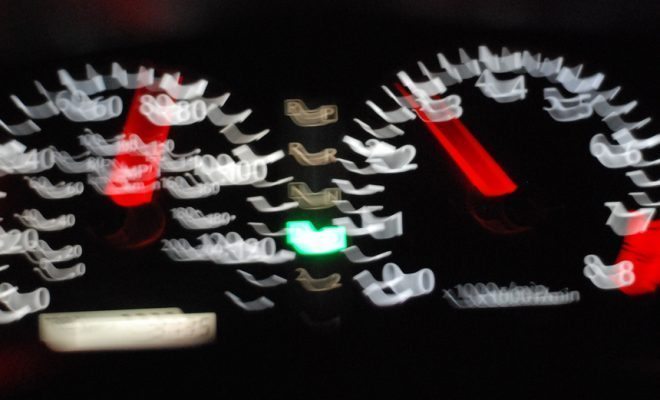 "What a DUI Might Look Like" courtesy of [Josh Hallett via Flickr]
"What a DUI Might Look Like" courtesy of [Josh Hallett via Flickr]
Cannabis in America
Cannabis DUI Laws Unsupported by Science, New Study Suggests
In an America where marijuana laws are being liberalized and the drug itself de-stigmatized, drivers who are found with traces of a cannabinoid in their blood can incur similar punishments in some states to those who drive under the influence of alcohol, a much deadlier exercise.
Marijuana researchers have been publishing studies over the past few years that have found marijuana to be a less dangerous substance than alcohol, and a recent study by the AAA Foundation for Public Safety appears to substantiate those claims when it comes to criminalizing drivers: “Legal limits, also known as per se limits, for marijuana and driving are arbitrary and unsupported by science.”
At the moment, drivers in Montana, Washington, Pennsylvania, Ohio, Nevada, and Colorado are convicted of a DUI if they are found with a certain amount of a cannabinoid–THC, hydroxy-THC or carboy-THC–in their bloodstream. And similar to a DUI involving alcohol, this can result in hefty fines or even a lengthy prison stay. The problem is that THC can linger in a user’s bloodstream for days after actively ingesting the drug, whether for recreation or medical purposes, so a driver can be perfectly safe and sober while driving yet convicted of a crime because of an action taken a day or more prior.
Michael L. Becker of the Las Vegas Defense Group and one of Nevada’s top criminal defense lawyers called the law “hypocritical”; that in a state where medical marijuana is legal it is possible for someone who uses the drug as a medicine one day and then is found with it in his or her bloodstream days later can be found guilty of a DUI offense.
“I’ve had cases where prosecutors have said to me ‘I know your client wasn’t under the influence, but I can prove he has metabolized marijuana in his system’,” Becker said in a phone interview with Law Street, pointing to cases in which a client’s body is still processing marijuana from a dose taken a day or more prior to when an arrest is made. “People are literally being prosecuted where everybody knows they weren’t even high.”
The current threshold for what is considered above the legal limit in Nevada is two nanograms of THC per milliliter of blood, lower than the five milliliter threshold in Colorado and Washington, both of which have legalized marijuana completely. The new study by the AAA Foundation for Traffic Safety used psychophysical tests (walk-and-turn, finger-to-nose) and physical indicators (bloodshot eyes, pupil dilation) on drivers who had consumed marijuana and those who had not, and determined quantifiable thresholds for THC “cannot be scientifically supported.”
That’s not to say driving high poses no danger whatsoever. Being under the influence of marijuana while driving doubles the chances of a crash, a figure most researchers accept. But according to a study from 2014, 20-year-olds who drive with an illegal amount of alcohol in their system (above 0.08 percent) are twenty times as likely to crash. The researcher who conducted that study, Eduardo Romano, told The New York Times, “Despite our results, I still think that marijuana contributes to crash risk, only that its contribution is not as important as it was expected.”
So how can THC levels be accurately quantified in determining whether a driver is under the influence of cannabis, and above the legal threshold, if not by blood-THC content?
There is hardly a consensus among researchers, partially because they are limited in their research since cannabis is classified as a Schedule I drug in the U.S., meaning any research into it requires a special permit. Experts see saliva sampling as a promising alternative to blood testing, but the jury is out until more research is conducted.
While scientists try to figure out more reasonable ways of measuring the dangers of driving stoned, Becker, the lawyer in Las Vegas, continues to help his clients navigate the ironic situation of being legally allowed to use a drug that could put them in jail days after using it, if it’s in their system while they’re later behind the wheel. Becker wasn’t able to give an exact number of clients he represents who find themselves in this quandary, but he said it does happen.
And as marijuana is decriminalized and used more frequently, “[the law] is going to impact more people,” he said. Nevada’s law–drafted at a time when “communities were fearful and anti-marijuana”–has been examined for a repeal, but according to Becker, real change has been resisted because it’s not a “politically expedient” issue.
Becker hopes change is on the horizon: “The Nevada legislature is finally deciding to have an honest look at things. That’s the bright side,” he said.








Comments